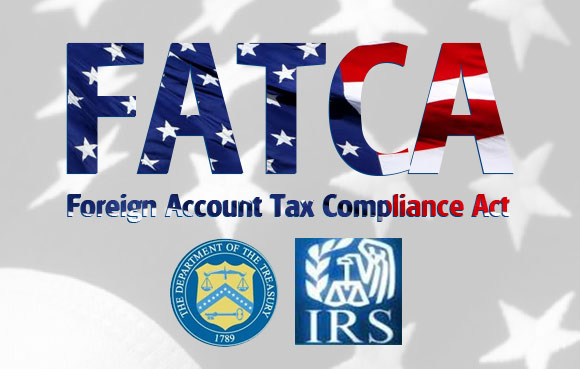With a focus on enforcing FATCA, the Foreign Account Tax Compliance Act, the Internal Revenue Service is now exchanging financial account information with the taxing authorities in selected countries. The agency announced it had achieved this goal just ahead of its deadline of Sept 30.
The IRS first had to develop the information system infrastructure, procedures, and data use and confidentiality safeguards to protect taxpayer data while facilitating reciprocal automatic exchange of tax information with certain foreign jurisdiction tax administrators as specified under the intergovernmental agreements (IGAs) implementing FATCA.
“Meeting the Sept. 30 deadline is a major milestone in IRS efforts to combat offshore tax evasion through FATCA and the intergovernmental agreements,” said IRS Commissioner John Koskinen. “FATCA is an important tool against offshore tax evasion, and this is a significant step in the process. The IRS appreciates the assistance of our counterparts in other jurisdictions who have helped to make this possible.”
The agency has not yet disclosed which nations it has already started exchanging such data with.
The information exchange is part of the IRS’s overall efforts to implement FATCA, enacted in 2010 by Congress to target non-compliance by U.S. taxpayers using foreign accounts or foreign entities. FATCA generally requires withholding agents to withhold on certain payments made to foreign financial institutions (FFIs) unless such FFIs agree to report to the IRS information about financial accounts held by U.S. taxpayers, or by foreign entities in which U.S. taxpayers hold a substantial ownership interest.
In response to the enactment of FATCA and other jurisdictions’ interest in facilitating and participating in the exchange of financial account information, the U.S. government entered into a number of bilateral IGAs that set the groundwork for cooperation between the jurisdictions in this area. Certain IGAs not only enable the IRS to receive this information from FFIs, but enable more efficient exchange by allowing a foreign jurisdiction tax administration to gather the specified information and provide it to the IRS. And some IGAs also require the IRS to reciprocally exchange certain information about accounts maintained by residents of foreign jurisdictions in U.S. financial institutions with their jurisdictions’ tax authorities.
Under these reciprocal IGAs, the first exchange had to take place by September 30, giving the IRS a deadline to put in place a process to facilitate this data exchange.
The information now available provides the United States and partner jurisdictions an improved means of verifying the tax compliance of taxpayers using offshore banking and investment facilities, and improves detection of those who may attempt to evade reporting the existence of offshore accounts and the income attributable to those accounts.
The IRS will only engage in reciprocal exchange with foreign jurisdictions that, among other requirements, meet the IRS’s stringent safeguard, privacy, and technical standards. Before exchanging with a particular jurisdiction, the United States conducted detailed reviews of that jurisdiction’s laws and infrastructure concerning the use and protection of taxpayer data, cyber-security capabilities, as well as security practices and procedures.
“This groundbreaking effort has fundamentally altered our relationship with tax authorities around the world, giving us all a much stronger hand in fighting illegal tax avoidance and leveling the playing field,” Koskinen said.
Meeting this deadline reflects a significant international collaboration and partnership with dozens of jurisdictions around the world. The capacity for reciprocal automatic exchange builds on numerous accomplishments including the following:
- Development of a consistent data reporting format, or schema, and the agreement to use this format by all jurisdictions;
- Establishment of the details and procedures required to assure data confidentiality;
- Creation of a data transmission system to meet high standards for encryption and security; and
- Cooperation with foreign jurisdiction tax administrations to achieve the timely implementation of this exchange.
Koskinen noted the risks of hiding money offshore are growing and the potential rewards are shrinking.
Since 2009, tens of thousands of individuals have come forward voluntarily to disclose their foreign financial accounts, taking advantage of special opportunities to comply with the U.S. tax system and resolve their tax obligations. At the beginning of 2012, the IRS reopened the Offshore Voluntary Disclosure Program (OVDP), which is open until otherwise announced.
Thanks for reading CPA Practice Advisor!
Subscribe Already registered? Log In
Need more information? Read the FAQs
Tags: Income Taxes, IRS




